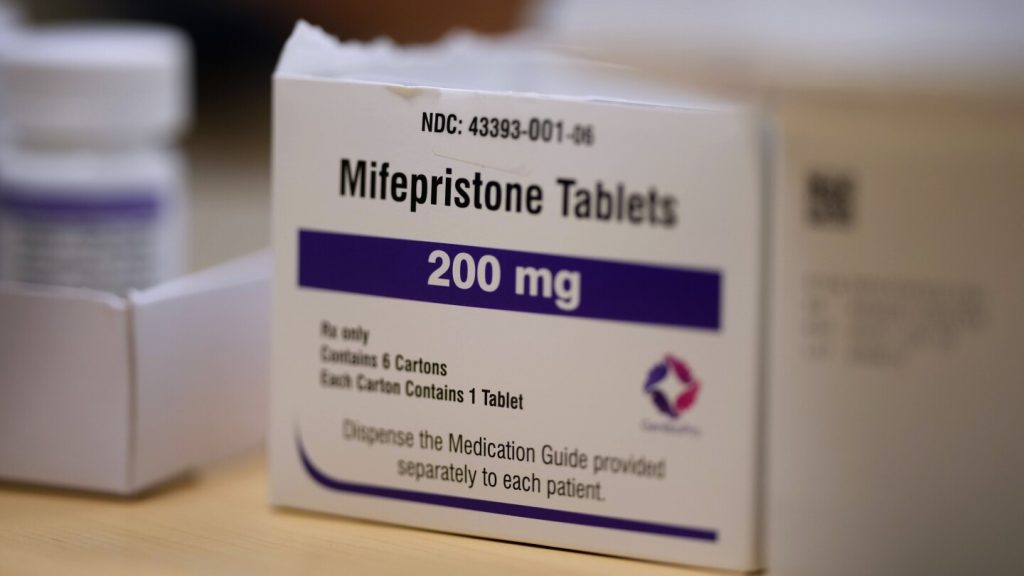Lawmakers Target Abortion Pills Amid Post-Roe landscape
Lawmakers in several states where abortion has been banned are pushing forward with new measures aimed at explicitly banning abortion pills, a step that has drawn mixed reactions from anti-abortion groups. While some leading organizations within the anti-abortion movement oppose punishing women who seek abortions, there is a growing trend of legislative efforts to criminalize the use of abortion-inducing drugs. This policy debate has intensified following the Supreme Court’s 2022 decision to overturn Roe v. Wade, which removed federal protections for abortion and allowed states to impose their own restrictions.
Efforts to Classify Abortion Pills as Controlled Substances
In states with Republican-controlled governments and existing bans on abortion, lawmakers have introduced measures to classify mifepristone and misoprostol — the drugs commonly used in medication abortions — as controlled dangerous substances. Louisiana was the first state to pass such a law last year, despite concerns from medical professionals who warned that the restrictions could hinder access to these drugs for life-saving procedures. The legislation has also been introduced in Idaho, Oklahoma, Tennessee, and Texas, but it remains too early to determine whether these bills will gain significant traction. In Indiana and Mississippi, similar legislation has either died or seems unlikely to advance. Governor Kevin Stitt of Oklahoma, a staunch opponent of abortion, has expressed his willingness to sign any anti-abortion measures that reach his desk.
The Impact of Introducing Controversial Bills
Even if these bills do not advance, their mere introduction can have a significant impact on public discourse and policy. According to Laura Hermer, a professor at Mitchell Hamline School of Law in St. Paul, Minnesota, the repeated introduction of such bills can help normalize extreme anti-abortion measures. “The more often that they’re introduced, the more normalized these sorts of bills and these sorts of concepts that they’re pushing become,” she noted. This normalization can influence public opinion and potentially pave the way for more restrictive laws in the future.
Legal Battles Over Telehealth and Abortion Pills
The fight over abortion pills extends beyond state legislatures, with authorities in states with strict abortion laws targeting healthcare providers who prescribe these drugs through telehealth services. Louisiana has indicted New York-based Dr. Maggie Carpenter on felony charges for allegedly sending abortion-inducing drugs to patients in the state. Similarly, Texas Attorney General Ken Paxton has filed a civil lawsuit against Carpenter under similar circumstances. These legal actions test the boundaries of laws in states like New York, which seek to protect healthcare providers who use telehealth to prescribe and mail abortion pills to patients in states where they are banned. New York officials have made it clear that they will not extradite Dr. Carpenter to Louisiana, and Governor Kathy Hochul has signed a law allowing doctors to omit their names from prescription bottles for abortion pills to further protect them from legal action. Similar legislation is being considered in Maine.
Medical Safety and Professional Consensus
Critics of abortion pills often argue that the drugs are unsafe, but major medical organizations strongly disagree. The American College of Obstetricians and Gynecologists (ACOG) cites decades of evidence showing that mifepristone and misoprostol are safe and effective. ACOG points to a study indicating that major adverse events, such as significant infection or excessive blood loss, occur in less than 0.32% of patients taking mifepristone for a medication abortion. Medical organizations emphasize that the safety of mifepristone is comparable to that of over-the-counter pain medications like ibuprofen. Despite this, some states continue to push for stricter regulations, often citing moral or ethical grounds.
Push to Criminalize Women Seeking Abortions
In a more controversial move, some lawmakers are introducing bills that would criminalize women who seek or obtain abortions, potentially charging them with murder. This is a step that no state has taken so far and is strongly opposed by leading anti-abortion organizations such as Susan B. Anthony Pro-Life America and the National Right to Life Committee. Nevertheless, such bills have been introduced in Idaho and Indiana, where they seem unlikely to advance, and in Oklahoma, North Dakota, and South Carolina, where they are still in the early stages of the legislative process. South Carolina state Senator Richard Cash, who introduced a bill allowing for the punishment of women who obtain abortions, supports the measure despite national opposition. “The bill does not single out women by any means,” he argued. “The bill simply acknowledges that if the unborn child is a human being, anyone involved in killing that human being should be held accountable to the law.”
Conclusion
The ongoing debate over abortion pills and the criminalization of abortion reflects the broader political and social tensions that have emerged in the post-Roe era. While state legislatures continue to introduce and consider restrictive measures, medical professionals and advocates are working to protect access to safe and legal abortion. The legal and political battles being fought highlight the complexity and emotional nature of the issue, with significant implications for the rights and health of women across the country.












